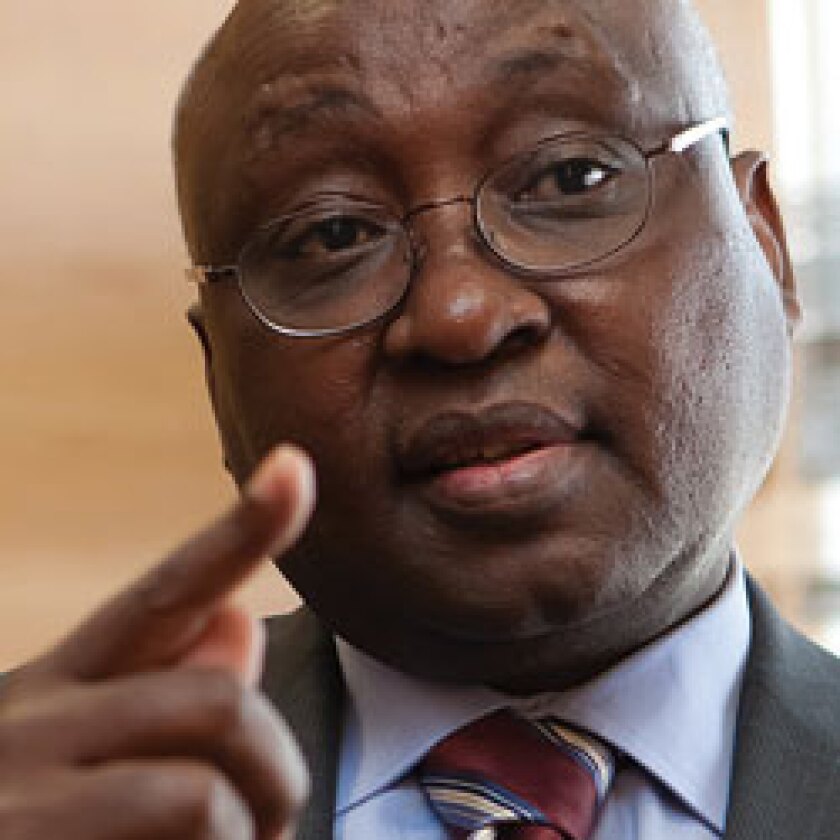Liberalizing reforms, like those imposed on many African countries three decades ago, are now needed in Europe, Donald Kaberuka, president of the African Development Bank, has said.
With the global economy teetering on the edge of a double-dip recession, developed countries would have to taste some of their own medicine, Kaberuka told Emerging Markets in an interview.
“What I am worried about is how deep this global situation can go. A solution is needed and probably a radical one that will cost money, but which will also need to be accompanied by radical reforms.
“Money alone is not enough. You need radical reforms in the labour markets, in the pension system. This is what we had to do in Africa in the 1980s,” Kaberuka said.
“The global economy requires major decisions. In 2008 during the Lehman crisis, the global economy came close to a near-death experience. We have learned lessons. Decisions should be taken now to ensure a new growth momentum is created.”
Kaberuka highlighted the dangers of Africans being put in the position of innocent bystanders who suffer the consequences of external shocks.
Sub-Saharan Africa is still holding its own economically, in the face of an unprecedented combination of the global crisis, the humanitarian crisis and food inflation in the Horn of Africa, the Arab Spring, and political violence and post-conflict uncertainty in parts of West Africa, Kaberuka said. “But tensions are beginning to emerge.
“I am confident that we in Africa can for now weather what is going on. But we are worried about the dark clouds on the horizon,” said the former Rwandan finance minister, who has been heading the African Development Bank for the past six years.
“Africa has built an underlying resilience which I am certain will serve us well [as in the post-2008 crisis period], save an unusual prolonged deep disturbance in the global economy. The momentum built since 2000 cannot be easily undermined.” he said.
Nevertheless, consequences would be worse for many African countries if commodity prices continue to fall after an unprecedented period of boom, Kaberuka argued. “We are not there yet, but if this crisis in the euro area is not resolved quickly and decisively, the impact in low-income countries through different channels – investment flows, exports – could be something to watch.”
Yet Kaberuka denied that sub-Saharan Africa would need more external resources to overcome the crisis, and argued the most important priority for African countires was to pursue policies that increase their strength and resilience.
“We need to get two things right: managing our resources well, and inclusive growth – which means quality education, small enterprises, regional development, leaving money behind [i.e. restraining capital flight] and safety nets. [If these things are done], I think we could call in the progress we began in the 1990s.”
